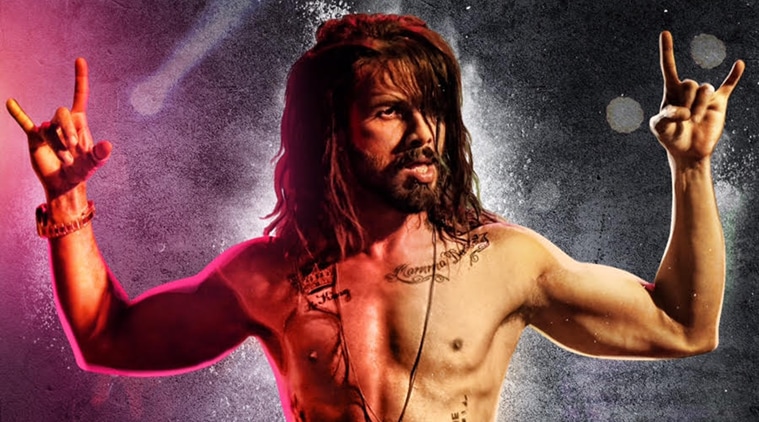 A still from Udta Punjab
A still from Udta Punjab
“Love you, Udta Punjab!”
It’s Tommy Singh’s voice in the audience — raspy, grating and heroin-muffled; a silhouette that has sounded the wrap with a rock n’ roll salute. This is a moment of epiphany just before the lights go up in a packed Nawanshahr cinema hall. It is the precise point when in your head you can cut to ASI Sartaj (Diljit Dosanjh) having a go at Tommy (Shahid Kapoor) in the lock-up and screaming in anger: “Sara Youth Kharab Karta…bh*****d (You’ve spoiled the entire youth of Punjab)”. As this young man in shorts and t-shirt with a dabbi-wala parna (casual turban made of chequered fabric) wrapped around his shoulders swags out of the hall along with others, a small group lingers on.
They pick up on their interval-time discussion about a youth in their village, who like Balli, a character in the grip of addiction in the movie, was overwhelmed by the detox and ran away from the “nasha-mukti kendar” (de-addiction centre) more than once. As the ushers prepare for the next show, the group holds on, discussing minute details about an addict’s constant craving for water and the urge to inflict harm as depicted in the movie. Then one among them draws the final conclusion with affectionate pity: “Nasha na bande de damag cha phas janda (Addiction takes root in your head).”
Interestingly, the conversation about Punjab’s most seething crisis has the ordinariness of Delhiites discussing their traffic woes. This is everyday reality.
![]() Udta Punjab Public reactions: Thumbs up for Shahid, Diljit; 'abuses fly too high', say Punjab audiences
Udta Punjab Public reactions: Thumbs up for Shahid, Diljit; 'abuses fly too high', say Punjab audiences![]() Udta Punjab row: ‘Adult with Caution’ category for restricted viewing suggested by Shyam Benegal panel
Udta Punjab row: ‘Adult with Caution’ category for restricted viewing suggested by Shyam Benegal panel![]() Mirror, Mirror on the Wall
Mirror, Mirror on the Wall![]() Udta Punjab issue reflects badly on CBFC, voice of the filmmaker shouldn't be throttled: Aamir Khan
Udta Punjab issue reflects badly on CBFC, voice of the filmmaker shouldn't be throttled: Aamir Khan![]() Tommy Singh is the craziest character I’ve played: Shahid Kapoor
Tommy Singh is the craziest character I’ve played: Shahid Kapoor![]() I hope people make 'Udta Punjab' tax-free: Shahid Kapoor
I hope people make 'Udta Punjab' tax-free: Shahid Kapoor
Inside or outside the theatre, a newly-minted “miniplex” barely 12-km from Bhagat Singh’s ancestral village, Khatkar Kalan, there’s no palpable anger over the state of affairs or even at any supposed insult to Punjab.
“This movie is a trailer, the real Udta Punjab is out there… asi te roz vekhi da, bhaji (we witness it daily). Why will we be shocked,” says Manpreet, a student of RK Arya College in the neighbourhood.
All through the movie’s two-hour runtime and even amid horror-filled scenes, sounds from the audience rush to fill the hall with quips and laughter. The profanities draw the maximum applause, and even the druglord’s wretched sidekicks evoke a few chuckles with their wimpish clumsiness as they abuse Alia Bhatt’s character inside a dimly-lit village safe house.
In fact, right at the beginning, as a lengthy disclaimer pulls up and stays on screen longer than you would expect it to, the censor’s carefully vetted draft is cut to size with a loud jeer: “Oh badi angrezi paa ti shuru cha! (So much English right at the beginning).” The audience has no patience for it.
As Shahid Kapoor plays the Range Rover-riding, “Chitta” (heroin) snorting alpha dog on screen, someone innocently remarks, “Chitta-chutta amiran layi theik aa, sade gariban layi shishiyan wadiya (Chitta is for the rich, injectable drug cocktails work best for poor people like us).”
The hall packed with young men, with only a handful girls, has several flaunting their “Gabru swag”. But as the movie fearlessly tackles the drugs hot-potato, the audience doesn’t seem half as rattled as the political class.
In fact, as life in small town Punjab catches up with the movie’s hype, it is not for an escape from reality. Rather, it’s for a matter-of-fact reaffirmation of the times, for tallying real stories with the reel depiction.






